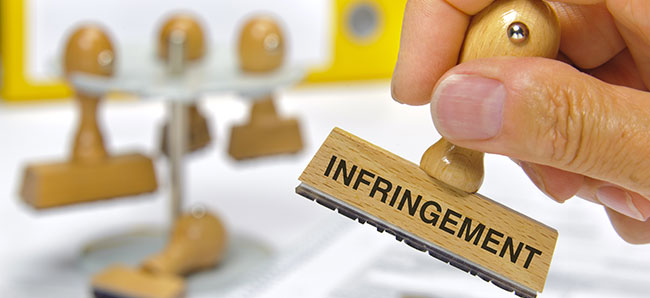When starting a new business, there are so many issues to concern yourself. Forming a company. Registering with the city. Filing taxes. Obtaining insurance. Hiring people. Forming partners. Opening a bank account and a merchant account. Finding customers, then fulfilling orders or providing services. Trying to get paid. Meeting payroll. Finding the right vendors. Naming your business. The list goes on and on.
When Naming Your Business Be Aware of Similarly Named Companies
It’s no wonder that when it comes to naming a company, many people spend very little time evaluating the name and making sure it’s actually available for use. Oftentimes, new business owners and entrepreneurs will do nothing more than verify a name is available at the Secretary of State’s office.
Unfortunately for many business leaders, there may come a time when they learn someone else may have a trademark on the name they are using for their company. This knowledge may come from a friend, who traveled to another state and saw the company, or the knowledge may come in the form of a cease-and-desist letter (or C&D letter) from an attorney representing the trademark holder.
Whether you are just thinking of naming your company now, or you’re one of those unfortunately business leaders who has come to learn that the name of their company is already taken by someone else, you need to ask yourself two questions:
First, does the other guy have a trademark for his company name that predates your use?
Second, if so, is there a “likelihood of confusion” between the names of your two companies?
If you answer “yes” to both questions, then you definitely have a problem. If you answered “yes” to only one question, then you may have a problem. And, if you answered “no” to either question, then you’re probably okay — unless you are both in the same state, then whomever was using the name first will probably be able to assert “common law rights” of the name over the other company.
We wrote about likelihood of confusion in a previous blog article entitled, Likelihood of Confusion — Don’t be Confused by Trademark Law, which goes into greater depth on this concept.
How do you know whether you need to change your business name?
Just Because Someone Else Has a Similar Name, Doesn’t Necessarily Mean You Have a Problem
Ask yourself the following questions, in regards to the other company:
- Are they associating products or services with their company name, instead of using a different d/b/a or brand name?
- Are their products or services similar to your products and services?
- Do they use similar channels or trade and/or go after the same customers?
If you’ve answered YES to all the above, then we may have a problem. Now we need to ask ourselves:
- Do they have a valid US-based trademark?
- Have they been using the name before you?
- Do they have national aspirations, and is there a chance your two companies may be in the same geographic market (or state)?
If you’ve answered YES to all the above, then we definitely have a problem. You should change the name of your company.
If you didn’t answer YES to all the above, you could still have a problem and you should consult with a properly licensed trademark attorney to go over the facts and circumstances, who tell you what your options are. For example, if the other company doesn’t have a valid US-based trademark, but they have been using the name before you — they can certainly apply for a US-based trademark and create problems for you in the future.
A trademark attorney can also give you the specifics on fighting for your name, so you can determine whether it’s worth a fight or whether you can win.
Naming your business is an important step in creating a company. Make sure you do it right!
Law 4 Small Business, P.C. (L4SB). A little law now can save a lot later. A Slingshot company.

